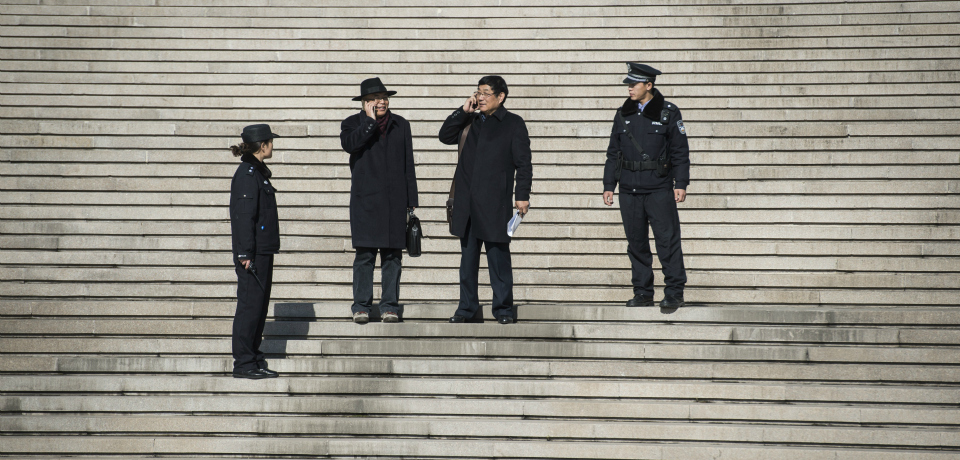The Xi administration’s wide-reaching crackdown on civil society activism escalated in July when over 200 human rights lawyers and activists were detained or questioned in what became known as the “Black Friday” round-up; while the majority of those detained have since been released, some remain in custody in undisclosed locations, and other lawyers have since met travel restrictions. Amid protest from foreign governments, human rights organizations, and legal groups, the American Bar Association in August issued a mild statement, which was criticized by NYU legal scholar Jerome Cohen as being “adequate,” but not meeting his “standard for what would be appropriate.” In an editorial for the Washington Post, Robert Edward Precht described the state as exemplary of a growing problem for international organizations working in China: “the pressure to keep silent in the face of human rights abuses even if doing so violates their mission statements.” At Foreign Policy, Isaac Stone Fish takes a deeper look at what likely kept the ABA’s statement as placid as it was:
The ABA’s August statement sits at the intersection of several moral questions regarding foreign institutions dealing with a rising China and with authoritarian governments worldwide. Does the ABA’s furthering of a specific goal — broadly speaking, the rule of law — justify downplaying a human rights abuse like the arbitrary detention of human rights lawyers? More pointedly, does doing good work quietly in China give an organization a pass from speaking up against injustice?
[…] Problematically for the organization, the goals of ABA ROLI [Rule of Law Initiative] don’t always accord with those of the ABA more broadly: When ABA ROLI advocates for Chinese human rights lawyers, those efforts may harm the pragmatic interests of ABA members who practice corporate law in China — by tainting the organization and foreign lawyers in Beijing’s eyes. “The ABA is a complex organization that should take a leadership role in advocating for lawyers and the profession,” said an ex-employee of ABA ROLI, who asked to remain anonymous because of the controversy surrounding the debate. And yet, ABA ROLI “and the reality of programming on the ground create internal tensions,” the ex-employee said. Multiple sources admitted that it is difficult, if not impossible, for an organization of the ABA’s size or complexity to please its members while satisfying the demands of Beijing. But the August statement following the detention of Chinese lawyers and activists “misses the mark,” the ex-employee concluded, “even cognizant of how it might have ended up so seemingly toothless and strange.”
[…] Beijing’s mandarins are notoriously sensitive, especially toward criticism from foreign organizations. At the same time, the sheer size and influence of China makes successfully engaging with the country increasingly critical. Several people working at foreign legal NGOs in Beijing admired that the ABA dared issue a statement at all. “There is power in just standing up and saying something,” the head of a legal reform NGO in Beijing said, asking to speak anonymously because of the sensitivity of the subject. “Beijing is not going to parse the language; they’re just going to say, ‘Oh, they made the statement.’”
On one level, the two sides are fighting the same battle: Both Beijing and foreign legal NGOs want to strengthen and improve China’s judiciary. Recently, for example, there has been a successful push to reduce wrongful convictions for nonpolitical court cases. Shortly after coming to power in late 2012, Chinese President Xi Jinping instituted a wide-ranging fight against corruption in the Communist Party apparatus. He has targeted both “flies” and “tigers” — low-level officials and the powerful elite — reportedly decreasing instances of crimes like bribery and graft. […] [Source]
Read more about the ongoing crackdown on civil society and free speech, or Xi’ Jinping’s anti-corruption drive, or concerns over the draft foreign NGO law, via CDT. Also see CDT coverage of a similar debate among foreign writers: is publishing in China’s highly-censored market—and hence exposing readers to information they may otherwise have missed—worth the cost of bowing to censors requests?







